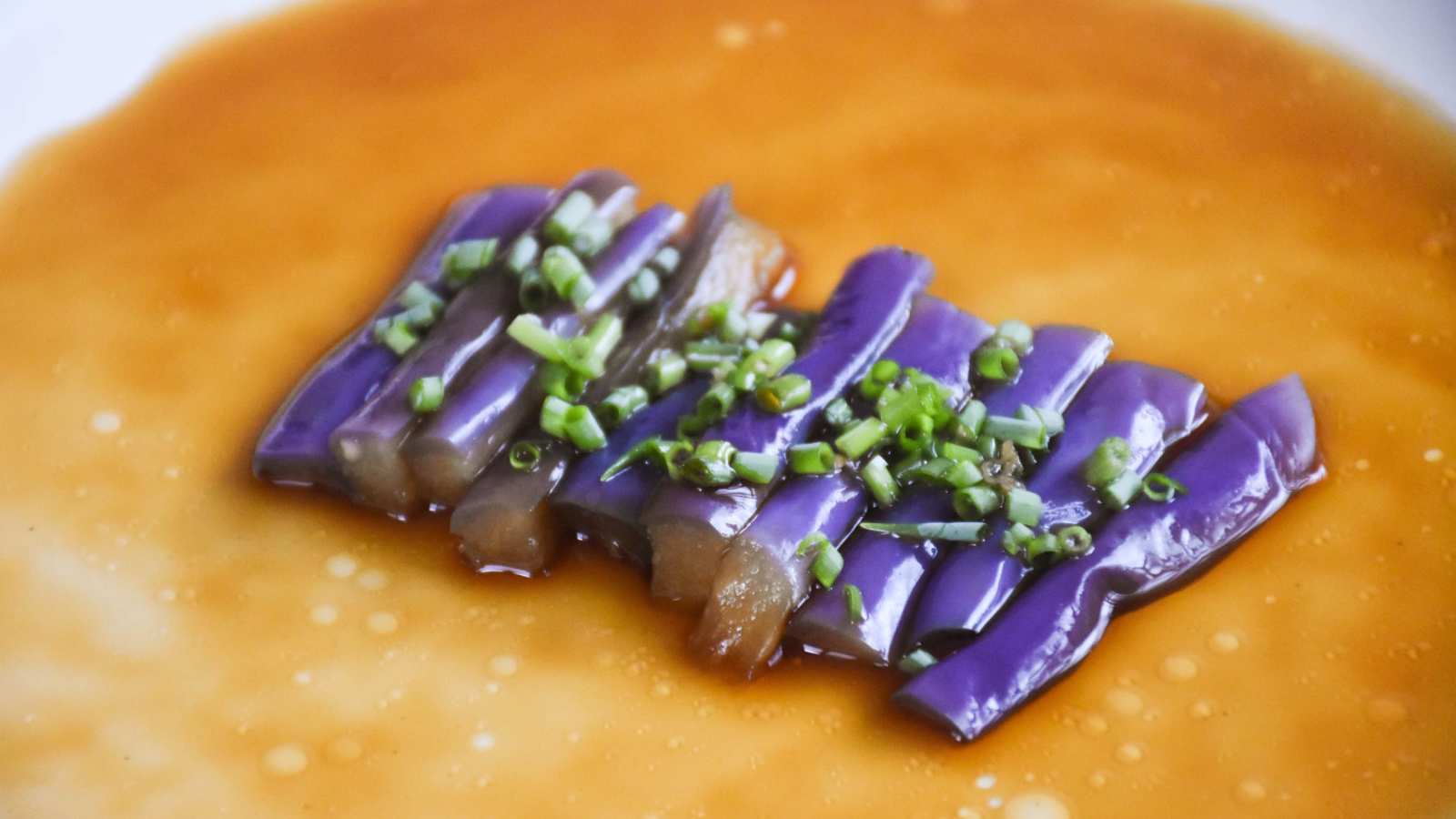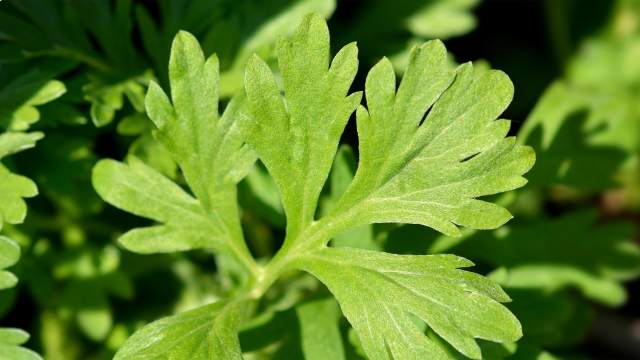Liangban Qiezi

Liangban Qiezi
Description
This chilled eggplant salad is a Taiwanese summer classic, marinated with aromatic Chinese black vinegar, soy sauce, and sesame oil. Eggplant is rich in fiber, B vitamins, and minerals like magnesium and potassium that support bone health. Its phytonutrients support cell function, and memory, and anthocyanins may help fight diabetes, heart disease, and cancer.
NOTE
The recipe calls for Chinese eggplant, which is long, thin, and vibrant purple.
Equipment: steamer
Ingredients
2 as an appetizer SERVES
- 1 Chinese eggplant
- 1/2 Tbsp (7 ml) Chinkiang black vinegar
- 1 Tbsp (15 ml) light soy sauce
- 1 tsp sesame oil
- 2 Tbsp (30 ml) water
- 1 scallion, chopped for garnish
Directions
-
Step 1
Trim the ends of the eggplant and cut in half lengthwise, then in half again lengthwise. Cut the wedges crosswise so that they are each a few inches long and 1 inch (2.5 cm) wide. In a hot steamer, steam the eggplant until tender, about 10 minutes. Set aside. -
Step 2
In a medium bowl, whisk together the black vinegar, light soy sauce, sesame oil, and water. When the eggplant cools down, combine it with the dressing. -
Step 3
Put the dressed eggplant, covered, into the refrigerator for 1 hour to chill. When ready to serve, transfer to a plate and garnish with scallions.
About the author
More by Clarissa Wei

Luffa with Soy Milk
Luffa recipe: Here's a soupy, fruity and light soup in soymilk and a spoonful of goji berries.

Mugwort Dreams
& Dumplings
Grow mugwort for healing,
dreaming, and new ways
of cooking it.

Mugwort Dumplings
These beautiful, supple rice dumplings stuffed with sweet red bean paste are a traditional temple food, offered to the gods as a token of gratitude.





